Coppe launches studies for Metro Line 3 Implementation of the Rio de Janeiro
Planeta COPPE / Transport Engineering / News
Date: 10/06/2025

Coppe/UFRJ announced, this Tuesday, June 3rd, the start of technical studies that will support the implementation of Line 3 of the Rio de Janeiro Metro. The new subway line is expected to connect the municipalities of São Gonçalo, Niterói, Itaboraí, and the state capital (Rio de Janeiro), representing a significant advance for urban mobility and metropolitan integration.
During a ceremony held at Coppe, Professor Rômulo Orrico from Coppe’s Transportation Engineering Program (PET), who is the project coordinator, presented the objectives, methodology, timeline, and expected results of the study, named PRISMA-RJ – Project for Integration, Sustainability, and Development in Mobility in Rio de Janeiro. Federal, state, and municipal authorities, researchers, transportation sector specialists, and other strategic urban mobility stakeholders in the state were present.
With a 30-month deadline for completion, the project aims to provide a robust technical basis for strategic decisions regarding the line’s route, economic viability, and social impacts. “There isn’t a route yet. The decision on the route depends on the cost to be analyzed and the responsibility of whoever will make the decision,” stated Orrico.
The work will involve benchmarking with similar projects in Brazil and abroad, collecting and structuring urban and transportation data, holding public hearings, and the technical conception of the line. The drafting of the tender document and monitoring of the bidding process are also planned.
The study will involve a multidisciplinary team, bringing together specialists from Industrial Engineering, Systems Engineering and Computer Science, and the university’s Institute of Mathematics. This diversity of knowledge will allow for a broad and integrated approach, covering everything from data modeling and simulations to the analysis of social, economic, and environmental impacts.
According to Orrico, public participation will be one of the pillars of PRISMA-RJ. “Open and total participation from everyone is fundamental. We will seek it, and we will be sought. The population is a data provider. We want to know how the project can boost the local development plans of the cities involved. We will encourage every type of participation possible,” he emphasized.
Development and Sustainability
More than just meeting the growing demand for quality public transport in the Rio de Janeiro Metropolitan Region, the project aims to articulate different mobility modalities and contribute to reducing dependence on individual motorized transport. Expected impacts include improving the quality of life for the population, reducing fossil fuel consumption, and generating jobs.
The study is also expected to boost chains of knowledge, innovation, and culture through the involvement of laboratories, universities, and technical consultancies, in addition to contributing to the reduction of social inequalities by expanding access to services and opportunities.
According to Suzana Kahn, director of Coppe, the initiative reaffirms the institution’s strategic role in contributing to the formulation of public policies. “Coppe plays a fundamental role in building technological solutions for Brazil’s development. There are countless public policies we have managed to structure based on studies like this, covering essential areas such as infrastructure, environment, energy, and urban mobility,” she highlighted.
She added that the project represents a new stage for the development of the Metropolitan Region, with the potential to positively impact the lives of over two million people.
Tradition in Innovation
Coppe’s Transportation Engineering Program has a consolidated history of contributions to Brazilian urban mobility. Notable projects include the automatic traffic light synchronization system implemented in Rio de Janeiro in the 1990s, the green hydrogen pilot plant inaugurated in 2023, and the studies for the implementation of the Salvador subway, also led by Professor Rômulo Orrico, who participated in drafting the terms of reference and the bidding document for the Bahian capital.
